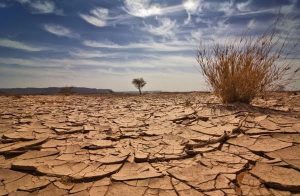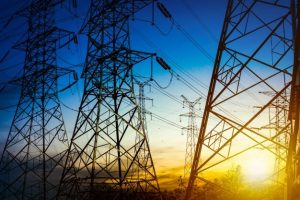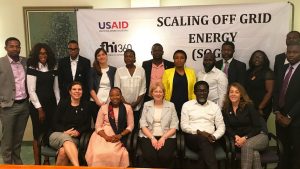By Ifeoma Malo and Josephine Ehusani – Power For All
While Nigeria’s energy problems are myriad, one bright spark is growing ever brighter: the distributed renewable energy (DRE) market. The sector has been rapidly accelerating – with Nigeria’s off-grid solar market alone growing 73 per cent in the first six months of 2016 – and a new raft of recent activity in the last quarter of 2016 and early 2017 looks set to turbo boost the emerging sector.
- This week Nova Lumos announced its plans to reach 1 million people in Nigeria with clean power by the end of 2017. Lumos, the country’s leading pay-as-you-go solar power provider, has already reached 150,000 people with solar energy. The organisation – which raised $90 million in financing last December – has a pioneering partnership with telecom company MTN, and recently just launched the roll out of its decentralized solar products across the nation.
- On 24 January the Bank of Industry (BOI) launched a one billion naira solar fund ($3.3 million) to catalyse the use of decentralized solar energy, including rooftop systems and mini-grids. Supported by State Governments and the United Nations Development Programme, the BOI solar fund will provide concessional financing to small to medium-sized enterprises (MSMEs), who will benefit from flexible terms, and interest rates as low as seven percent. The fund will also raise the profile of the decentralized solar market with commercial banks — ultimately expanding the pool of lenders to the DRE sector far further.
- Last month also saw the launch of the National Solar Program by the federal government. In collaboration with solar enterprise Azuri, the program aims to provide electricity to 20,000 rural households that cannot be serviced by the national grid. This Presidential initiative will create 500 direct jobs–including solar installers and agents–and 5,000 indirect jobs. Over the next 18 months, the program is expected to scale to several states through a federally supported financing scheme.
- Also the Federal Ministry of Power recently launched its energy mix investment prospectus with targets of 18% of the country’s generated renewable energy by 2018 and 20% of total electricity generated through renewable energy by 2030. Also, we have recently seen the approval and finalization of the country’s Rural Electrification Strategy and Implementation Plan which lays out amongst other things a holistic plan for rural and off-grid electrification for last mile and underserved communities across rural Nigeria.
- A range of partnerships, policies and financing initiatives in 2016 have laid the foundations for DRE market growth this year. The International Finance Corporation (IFC), and the UK Department for International Development (DFID), joined together to facilitate the deployment of off-grid and embedded solar systems in Nigeria’s commercial and industrial sectors, the Nigerian Electricity Regulatory Commission released a draft Mini-Grid regulation, the Nigerian National Petroleum Corporation started consultation on a new bio-fuel policy, the Renewable Energy Association of Nigeria was launched, and the success of the Solar Nigeria program led to a range of enterprises and micro-finance organisations, expanding their DRE operations across the country.
“2017 has kicked off with the ever burgeoning debt and liquidity issues in the Nigerian Electricity Supply Industry, but it has also kicked off with a blossoming distributed renewable energy market.”
2017 has kicked off with the ever burgeoning debt and liquidity issues in the Nigerian Electricity Supply Industry, but it has also kicked off with a blossoming distributed renewable energy market. We must keep up the momentum, and unlock the solutions of the future, rather than relying on technologies of the past. Nigeria has an opportunity to look beyond the grid and enter a new era for clean distributed energy. For the sake of 100 million people living without electricity, and millions more who are held back by unreliable and expensive power, it is an opportunity we must grasp.





